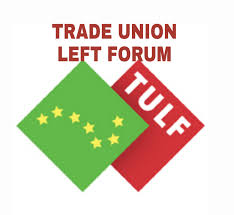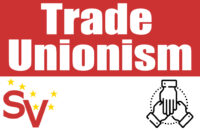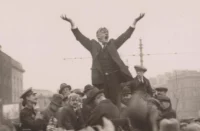On Saturday 23 March the Trade Union Left Forum held its first event of 2019. Under the heading “Let us arise: Has anti-union legislation got workers on their knees?” the workshop at the Connect hall in Gardiner Street, Dublin, attracted workers from throughout the trade union movement, reflecting the small but growing awareness of the anti-worker nature of trade union legislation and the need to begin combating it at every level.
The discussion was opened by two guest speakers, who presented well-received talks on the history and reality of anti-union legislation on both sides of the border. Mel Corry of the anti-sectarian and trade union education group Trademark in Belfast described the impact of anti-union laws in the north of Ireland since the Thatcher era and the capacity for resistance resulting from the devolution of labour law to Stormont.
The second speaker, Dave Gibney, communications officer of Mandate, covered the present situation in the Republic and the legislative battles on the labour front, in particular those of the banded-hours legislation and right to access.
Following the talks the participants engaged in a lively discussion on the effect of the Industrial Relations Act (1990) and equivalent laws in the North. The individualisation and judicialisation of industrial disputes within the concept of “social partnership,” coupled with declining union density and union militancy, were identified as major problems confronting the union movement and the working class today.
It was clear from those attending that there is a growing understanding among activists of the importance of not just challenging these laws but of working towards repealing them. Connect and Mandate have already passed motions proposed by their members committing them to repealing the 1990 act, while activist groups such as Communities Against Low Pay have also mobilised to challenge the legislation in practice, seeking to circumvent the numerous restrictions on secondary picketing, union access, and much more.
For too long we have been passive in the face of the fact that the structure of social partnership and trade union relations in both parts of the country serve only to tie up workers with legal control and restrictions, so as to stymie any attempt at effective industrial action and mobilisation. The net effect has been to leave the great mass of workers convinced that they are powerless and to lead them to become disillusioned with the trade union movement.
As a result of this passiveness, both the right and the ultra-left have sought to blame unions for this situation, rather than acknowledging the barriers to industrial action. It is time for trade union members and activists to begin dismantling the very architecture of industrial relations in Ireland, beginning with the keystone of social partnership in the Republic, namely the 1990 act. Unless we begin to rewrite the rules we will find ourselves perpetually on the losing side.
Never has this been more evident than with the unilateral withdrawal of the employers from social partnership and the rise of union-busting strategies, such as Tesco’s infamous Project Black. As we stare into the abyss of the next recession, it is clear that these attacks will only intensify, and that the union movement and the working class need to relearn how to defend themselves and to undo the chains of anti-union legislation.
To this end the Trade Union Left Forum will continue this discussion, with more talks and activities planned for this year. The next one, to be held in early May, will cover the pernicious effect of EU legislation on industrial struggle. All those who wish to engage in the fight to rebuild our unions as organisations of the working class are invited to attend.
- You can contact the Trade Union Left Forum (tuleft@gmail.com) or Communities Against Low Pay (communitiesagainstlowpay@gmail.com) by e-mail or through social media.






